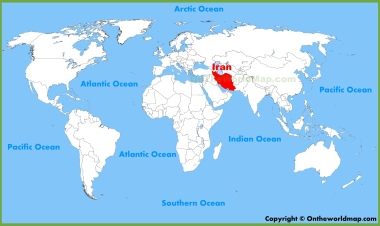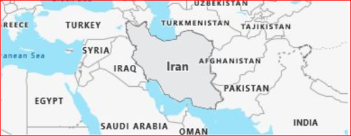
“The middle class seems to be suffering the most from sanctions, in a country where social welfare programs ease the brunt of deprivation for the poorest, and many of the wealthiest-in and out of government-have substantial rainy-day funds and access to more favorable exchange rates….Farnaz, a 39-year-old clothing designer and distributor, said she was concerned about “people’s mental states” as jobs disappear and the future becomes more uncertain. With sanctions-induced inflation and the skyrocketing cost of imported goods, she closed her Tehran boutique last year.…Factories and companies are closing, and unemployment is rising. The value of the rial, Iran’s currency, has plummeted, and the International Monetary Fund predicts a negative growth rate this year of minus-6 percent….As a result of the sanctions he began imposing last year, “Iran is doing very poorly,” President Trump said Saturday [6/29] at a news conference in Japan.…While insisting its target is the government and not the Iranian people, the Trump administration predicts that its goals cannot help but be enhanced by increased popular dissatisfaction with the leadership of the Islamic Republic.”…Population of Iran: 85.7 million
June 30, 2019, ““I have lost hope for my life’: Iranians describe hardships as Trump expands sanctions,”" Washington Post, Karen DeYoung, Erin Cunningham and Souad Mekhennet
 Image: “© Ali Mohammadi/Bloomberg Shoppers wait to buy discounted meat from a government supported store in Tehran on Feb. 23, 2019. The cost of red meat and poultry has surged in Iran.”
Image: “© Ali Mohammadi/Bloomberg Shoppers wait to buy discounted meat from a government supported store in Tehran on Feb. 23, 2019. The cost of red meat and poultry has surged in Iran.” “Iran’s news media was filled with upbeat economic reports last week. Several tankers of oil had been exported to China, and the economy minister said tax collections were up 30 percent. Farm-raised shrimp production had expanded by 400 percent.
“Summer is here!” one article exulted, and online vacation rentals in the country’s tourist spots were a potential growth market.
But on the streets of Iran’s cities, as the United States’ “maximum pressure” sanctions took hold, the view was decidedly less sunny.
Farnaz, a 39-year-old clothing designer and distributor, said she was concerned about “people’s mental states” as jobs disappear and the future becomes more uncertain. With sanctions-induced inflation and the skyrocketing cost of imported goods, she closed her Tehran boutique last year, she said, because “it didn’t make sense anymore.”
“People are cutting back on red meat because the price is too high,” said Djavad Salehi-Isfahani, a Virginia Tech professor visiting his 94-year-old mother in Iran. To the extent Iranians can afford protein, he said, most now get it from locally produced chicken, the price of which has merely doubled.
“Personally, I have lost hope for my life,” said Marjan, 42, a Tehran architect.
As a result of the sanctions he began imposing last year, “Iran is doing very poorly,” President Trump said Saturday [6/29] at a news conference in Japan. Iran’s government would “like to make a deal” in response to U.S. demands, Trump said, but he is in no hurry. “I have all the time in the world.”
According to international statistics and occasional releases by the Iranian Central Bank, the sanctions have had a profound effect on Iran’s economy. Factories and companies are closing, and unemployment is rising. The value of the rial, Iran’s currency, has plummeted, and the International Monetary Fund predicts a negative growth rate this year of minus-6 percent.
“They are in desperate shape,” said Adnan Mazarei, a fellow at the Peterson Institute for International Economics and former deputy director at the International Monetary Fund.
There has been no systematic study of how the sanctions have affected the lives of Iranians or of whom they blame for their troubles. Americans, including journalists, rarely travel there these days. Visas are hard to get, and some U.S. citizens have been subject to arrest as alleged spies.

This article is based on interviews with a dozen Iranians of various walks of life, most of them contacted by telephone inside the country. Nearly all asked to be identified only by their first names to avoid drawing government attention. [map, bing maps]
The stories they told of dashed hopes, lost jobs and scarce goods — including medical and food supplies ostensibly exempt from sanctions — were strikingly similar, as were their descriptions of a sort of nationwide apathy after the flickers of optimism that came with the 2015 nuclear deal.
The accord, between Iran and international governments, lifted then-existing sanctions in exchange for Tehran’s acceptance of strict limits on its nuclear program, designed to prevent development of a nuclear weapon. Trump withdrew the United States from the agreement last year, saying it was too weak to achieve its aims and failed to stop other malign Iranian activities, and he put even harsher sanctions in place. New punishments were announced last week after Iran shot down a U.S. surveillance drone.
The sanctions prohibit trade in U.S. dollars and threaten secondary measures against countries and companies that deal with Iran. They have brought Iranian oil exports down from 2.5 million barrels a day in April 2018 to as low as 300,000 barrels by some estimates. Iron, steel, aluminum and copper exports are under sanctions, along with most of the imported parts that keep Iran’s auto and other industries functioning.
While insisting its target is the government and not the Iranian people, the Trump administration predicts that its goals cannot help but be enhanced by increased popular dissatisfaction with the leadership of the Islamic Republic. U.S. government-sponsored social media bombards Iranians with reminders of government corruption and their isolation from the rest of the world.
An “Image of the Day” on the State Department’s Farsi Twitter account Saturday pictured Trump at the Group of 20 meeting in Osaka, fist-bumping with the smiling leaders of Japan and India, prime customers of Iranian oil. The caption said that purchases by both had “stopped or declined dramatically in recent months.”
The department’s tweets regularly feature words such as “Theft of Public Property” imposed over grim photographs of Iran’s supreme leader, Ayatollah Ali Khamenei, and other Iranian officials. Posted commentary claims that the “maximum pressure campaign is working.”
But reports from inside the country indicate that the number of Iranians who blame the Trump administration for the crisis is at least as high as the number who blame their own government.
“The truth is that the reason for the bad economic situation of Iranians is not only due to the sanctions, it has also to do with the way the government has run the economy,” said a German official recently in Iran. “But now they have a good excuse and blame everything on the United States. It’s like in Cuba, where they have a bad system, but people blame it all on the U.S.”
Pedram, 38, an Iranian stock trader, agreed. “For 40 years, the government has been telling us that we are in a ‘crisis state,’ so people don’t get shocked or take it too seriously. I think that the government has been successful in their anti-American propaganda. So now some people blame the United States most for the current situation, while in many cases, it’s weak and corrupt management that is responsible for the economic crisis.”
“The behavior of Trump is not that of someone who knows what he is doing,” said Roya, a housewife and mother of three. “First he threatens, and then he says this is not against the Iranian people. But we are the ones suffering.”
Mahdi, a Tehran resident, was 19 in 2009 when Iranians took to the streets in large numbers to protest their government, only to be repressed and silenced. More recently, he said, “I myself was worried during the nuclear negotiations that the West wasn’t putting more pressure on Iran to commit to reforms inside the country, stop arresting critics, and stop supporting proxies fighting in the region,” he said.
But “if the most powerful nation in the world is [now] begging for negotiations with us, that is making our country very powerful,” Mahdi said. “Trump doesn’t tell us what we as Iranian people could get in exchange for a new deal. So how should we know if it’s really going to be so much better for us?”
In the past, discontent with the government has led to a strengthening of Iran’s hard-liners, said Ali Vaez, director of the Iran Project at the International Crisis Group [backed by Soros, who is also a trustee]. “It’s a historic pattern of behavior, if you look at the major uprisings in 1999, in 2009, it all happened at a time the economy was actually growing.
“During times of extreme economic duress, people are most focused on trying to make ends meet,” Vaez said. In parliamentary elections scheduled for February [2020], “you’re likely to see a majority of the middle class refraining from going to the polls. That means hard-liners who have a loyal constituency have a really good shot at taking over the parliament,” where moderates now have significant power“and set the stage for presidential elections in 2021.”
The middle class seems to be suffering the most from sanctions, in a country where social welfare programs ease the brunt of deprivation for the poorest, and many of the wealthiest — in and out of government — have substantial rainy-day funds and access to more favorable exchange rates. So far, the result seems to be less actual pain and more restricted lifestyles, black humor and a listlessness toward a situation few feel they can do anything about.
Middle-class workers accustomed to taking budget-package vacations to Eastern Europe or Southeast Asia at least once a year can no longer afford such trips. One Iranian American, searching for a flight for his in-laws to an annual family gathering in Europe, found that the airfare from Iran had quadrupled.
“When Trump said ‘I have just canceled a strike on Iran,’ I was joking with my friends about it. No one is taking him [Trump] seriously,” said Alireza, a Tehran businessman.
Salehi-Isfahani, the Virginia Tech professor, had a similar experience in Tehran. “A couple of days ago, when people thought a war was going to break out, they were driving around” and walking in the parks. “People seem surprisingly unaware,” he said.
“In the Iran you see here, people are very concerned about their daily life because prices are higher and some have lost jobs. They are working harder to make ends meet. It appears they have less time to worry about politics and global affairs,” he said.
“They try very hard, in terms of each other, to be happy.”
...................
No comments:
Post a Comment